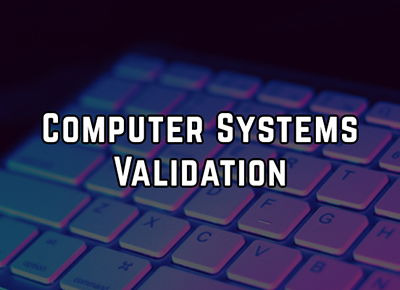Post-CSA Transition - Key Challenges And Leveraging Opportunities
🎤 Carolyn Troiano | 📅 August 28, 2024 | 🕒 11 AM Eastern Time US
Description:
So, you’ve transitioned to CSA, now what? This webinar is designed to address the critical next steps for organizations that have recently transitioned to Computer Software Assurance (CSA) in the FDA-regulated pharmaceutical, biotechnology, clinical, and medical device industries. As companies move from traditional validation approaches to CSA, they encounter a new set of challenges and opportunities. Our expert speaker will provide in-depth technical knowledge on navigating this transition effectively, ensuring compliance while leveraging the benefits of CSA.
During this webinar, we will explore the key technical challenges that organizations face post-transition, such as integrating CSA with existing quality management systems, ensuring data integrity, and maintaining robust documentation practices. We will discuss strategies to overcome these challenges, including the use of risk assessment tools, automation of validation processes, and the implementation of continuous monitoring systems. Additionally, we will highlight the opportunities CSA presents for improving software quality, reducing validation costs, and enhancing overall compliance. Participants will gain practical insights into implementing CSA best practices, understanding regulatory expectations, and optimizing their processes to achieve greater efficiency and effectiveness. Tips on how to communicate with FDA inspectors about your CSA approach, and how to document your CSA processes to withstand regulatory scrutiny, will also be covered.
Areas Covered in the Session:
- Identifying “GxP” Systems
- Current state of CSV approach based on FDA requirements
- Agile approach to System Development Life Cycle (SDLC)
- CSA and its significance in FDA-regulated industries.
- Regulatory expectations and compliance requirements for CSA.
- How to effectively integrate CSA with existing QMS
- Common challenges faced after transitioning to CSA.
- Strategies to overcome post-transition challenges.
- Risk Assessment tools for identifying and prioritizing validation activities.
- Best practices for automating validation processes.
- Implementing continuous monitoring systems for compliance and data integrity.
- Practical documentation practices to meet regulatory requirements.
- Communicating your CSA approach to FDA inspectors.
- Case studies and examples of successful CSA transitions.
- Interactive Q&A session
Who Should Attend:
IT, QA, & Business Managers and Professionals who need to:
- Manage or participate on computer system projects requiring validation
- Create or approve CSV project deliverables, such as requirements documents, validation protocols (IQ, OQ, PQ), Test Plans, and Test Reports.
- Understand the process of computer system validation
- Author, implement, or upgrade CSV policies and procedures that utilize a risk-based approach to meeting the latest regulatory expectations
- Understand the FDA and international regulatory landscape around CSV
This seminar is intended for those involved in planning, execution and support of computer system validation activities, working in the FDA-regulated industries, including pharmaceutical, medical device, biologics, tobacco and tobacco-related products (e-liquids, e-cigarettes, pouch tobacco, cigars, etc.). Functions that are applicable include research and development, manufacturing, Quality Control, distribution, clinical testing and management, sample labeling, adverse events management and post-marketing surveillance.
Examples of who will benefit from this seminar include:
- Information Technology Analysts
- Information Technology Developers and Testers
- QC/QA Managers and Analysts
- Analytical Chemists
- Compliance and Audit Managers
- Laboratory Managers
- Automation Analysts
- Manufacturing Specialists and Managers
- Supply Chain Specialists and Managers
- Regulatory Affairs Specialists
- Regulatory Submissions Specialists
- Clinical Data Analysts
- Clinical Data Managers
- Clinical Trial Sponsors
- Computer System Validation Specialists
- GMP Training Specialists
- Business Stakeholders/Subject Matter Experts
- Business System/Application Testers
This seminar will also benefit any vendors and consultants working in the life sciences industry who are involved in computer system implementation, validation and compliance.


